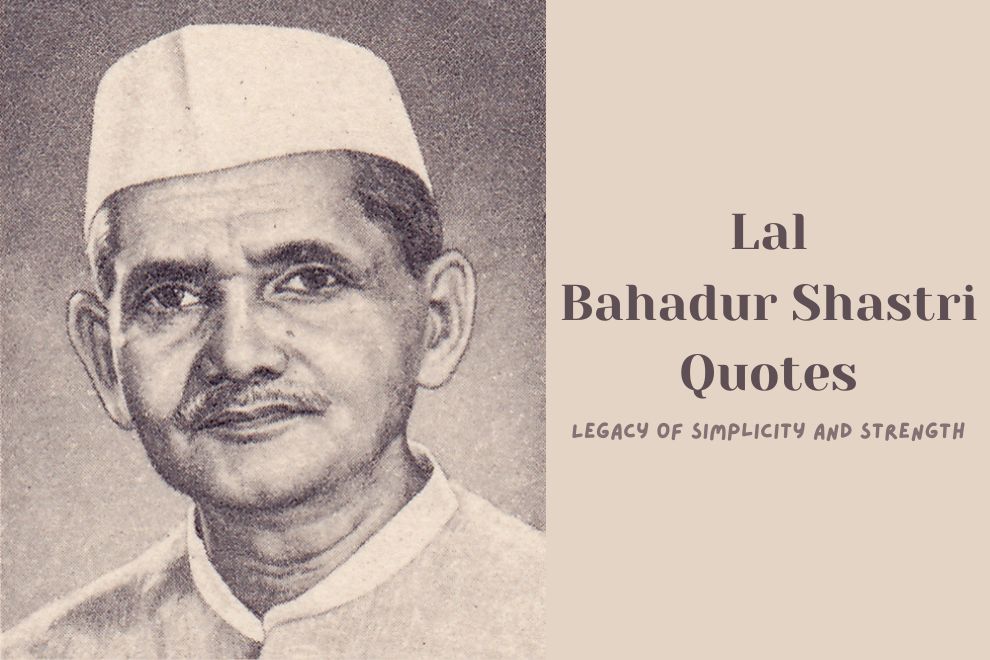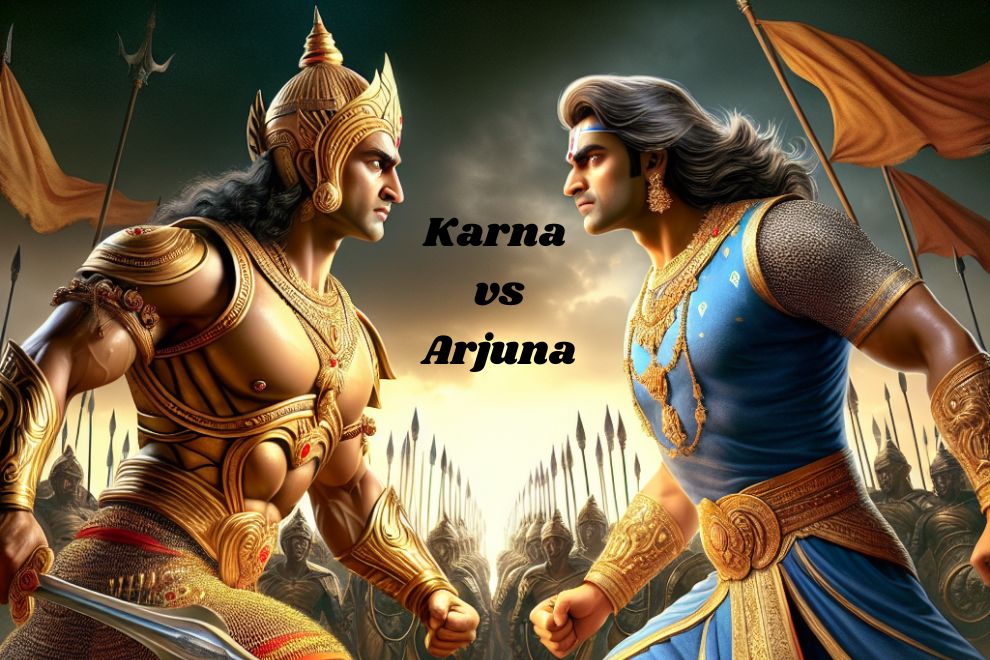India’s post-independence history is full of remarkable leaders, but few have left a mark as profound as Lal Bahadur Shastri. Revered for his integrity, humility, and unwavering patriotism, he remains a symbol of honest governance and national pride. As India’s second Prime Minister, he served during a period of enormous challenges—yet with quiet determination, he led with dignity and strength.
Lal Bahadur Shastri quotes continue to inspire generations, embodying values of truth, discipline, and devotion to the country. In this article, we explore his life philosophy through his most powerful words, and how they remain relevant in today’s world.
Early Life and Humble Beginnings
Born on October 2, 1904, in Mughalsarai (now Pandit Deen Dayal Upadhyay Nagar), Uttar Pradesh, Shastri came from a modest background. Despite economic hardships, he was deeply committed to education and nation-building from a young age. He joined the Indian independence movement inspired by Mahatma Gandhi, and spent several years in prison for civil disobedience against British rule.
One of the most powerful Lal Bahadur Shastri quotes that reflects his early commitment is:
“The preservation of freedom is not the task of soldiers alone. The whole nation has to be strong.”
This quote captures the essence of participatory democracy and the vital role every citizen plays in safeguarding freedom—not just the armed forces.
A Leader of the People
Shastri’s leadership style was starkly different from most politicians. He was approachable, soft-spoken, and led by example. His life was a textbook of honesty. He refused to use his position for personal gains. In fact, after his untimely death in Tashkent in 1966, the government discovered that he didn’t own a house or even a car.
He once said:
“We believe in peace and peaceful development, not only for ourselves but for people all over the world.”
Among all Lal Bahadur Shastri quotes, this one stands out for its global vision and diplomatic grace. It reminds us that development must go hand-in-hand with harmony.
The Jai Jawan Jai Kisan Slogan
In 1965, when India faced a war with Pakistan and a food crisis simultaneously, Shastri coined one of the most iconic slogans in Indian political history: “Jai Jawan Jai Kisan” (Hail the Soldier, Hail the Farmer). It wasn’t just a slogan—it became the soul of national revival. It urged unity between soldiers defending the borders and farmers feeding the country.
He said:
“The basic idea of governance, as I see it, is to hold the society together so that it can develop and march towards certain goals.”
This sentiment is often reflected in Lal Bahadur Shastri quotes, where he emphasizes national unity and responsibility. His call to support both jawans and kisans reflected his belief that India’s backbone lay in both courage and cultivation.
Austerity and Integrity in Public Life
During his tenure as Prime Minister, Shastri led by example in terms of simplicity. At a time when India was facing an economic crunch, he urged citizens to skip one meal a week to save grain. What’s remarkable is that he and his family followed this practice without fail. His leadership didn’t require loud rhetoric—his actions spoke louder than words.
Another of the memorable Lal Bahadur Shastri quotes is:
“Discipline and united action are the real source of strength for the nation.”
This quote continues to be relevant today. In an age dominated by materialism and political division, Shastri’s emphasis on discipline and unity feels like a timeless principle.
Shastri During the 1965 India-Pakistan War
The 1965 war tested Shastri’s leadership. Though he was soft-spoken, he displayed immense firmness and courage. His message to the Indian armed forces and citizens alike was clear: India will not bow down. He handled the crisis with maturity and dignity, avoiding escalation while protecting national sovereignty.
He remarked:
“We would consider it our moral duty to give all possible assistance to those countries who are striving to preserve their freedom and to maintain peace.”
Unlike leaders who crave the spotlight, Shastri stayed true to his ideals even during wartime. Lal Bahadur Shastri quotes from this period reflect a blend of courage and compassion that are rare in political history.
Legacy and Untimely Death
Shastri signed the Tashkent Agreement with Pakistan in January 1966 to bring peace post-war. Unfortunately, he passed away in Tashkent under mysterious circumstances just hours after signing the peace treaty. His death shocked the nation. Many believed he was poised to bring long-term stability to India.
Though his tenure lasted less than two years, his impact has lasted decades. His humility, ethics, and national commitment continue to be revered. In fact, schools, roads, and institutions across India bear his name, and his quotes are widely displayed to inspire students and professionals alike.
A lesser-known but profound one among Lal Bahadur Shastri quotes is:
“That loyalty to the country comes ahead of all other loyalties. And this is an absolute loyalty, since one cannot weight it in terms of what one receives.”
This quote perfectly sums up his character. He wasn’t driven by power or reward—his loyalty to India was unconditional and complete.
Relevance in the 21st Century
In today’s fast-paced world, where leadership often gets clouded by ambition and ego, revisiting Lal Bahadur Shastri quotes feels refreshing. His principles offer a blueprint for ethical governance and social harmony. For young leaders, he is a model of how to blend humility with power, and simplicity with strength.
Consider this powerful message:
“True democracy or the swaraj of the masses can never come through untruthful and violent means.”
With rising polarization in public discourse, this quote serves as a timely reminder that real democracy thrives on truth and peace—not manipulation or violence.
Education and Youth Empowerment
Shastri strongly believed in the power of youth. He saw education not just as a tool for employment, but as a means to shape character and nationhood. His ideas resonate in today’s calls for educational reform and value-based learning.
Among his motivational insights, this quote remains relevant:
“The economic issues are most vital for us and it is of the highest importance that we should fight our biggest enemies – Poverty, unemployment.”
Lal Bahadur Shastri quotes like these show his deep concern for inclusive development. He wasn’t just interested in numbers or GDP—he wanted growth to be people-centric.
Lal Bahadur Shastri Quotes for Daily Motivation
Here is a quick roundup of some powerful Lal Bahadur Shastri quotes that can serve as daily reminders of strength and character:
- “We believe in peace and peaceful development, not only for ourselves but for people all over the world.”
- “That loyalty to the country comes ahead of all other loyalties.”
- “Discipline and united action are the real source of strength.”
- “The preservation of freedom is not the task of soldiers alone.”
- “Jai Jawan Jai Kisan.”
- “We can win respect in the world only if we are strong internally and can banish poverty and unemployment from our country.”
- “There comes a time in the life of every nation when it stands at the crossroads of history.”
- “True democracy or the swaraj of the masses can never come through untruthful and violent means.”
- “The rule of law should be respected so that the basic structure of our democracy is maintained.”
- “Success in science and scientific work comes not through the provision of unlimited or large resources, but in the wise and careful use of whatever is available.”
These ten timeless Lal Bahadur Shastri quotes serve not just as historical reflections but also as guiding principles for future generations.
Why His Words Still Matter
Lal Bahadur Shastri may have had a short stint as Prime Minister, but his impact far outweighs his tenure. His legacy is built on honesty, courage, and commitment to the nation. In today’s complex socio-political environment, revisiting Lal Bahadur Shastri quotes offers a moral compass and a call to action for citizens and leaders alike.
His words were simple, but they carried weight. They inspired trust, discipline, and a sense of collective responsibility. Whether you are a student, entrepreneur, politician, or a common citizen, there’s something to learn and live by from the ideals embedded in Lal Bahadur Shastri quotes.
Let his vision not remain confined to books or speeches—let it find a place in our actions and aspirations as we strive to build a better, more united India.




